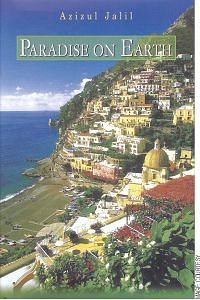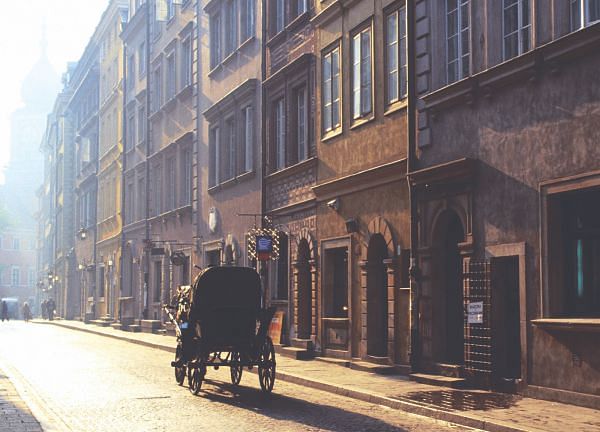| Home - Back Issues - The Team - Contact Us |
 |
| Volume 11 |Issue 23| June 08, 2012 | |
|
|
Book Review Paradise Lost AHMEDE HUSSAIN
Azizul Jalil has travelled far and wide-- Tuscany in Italy to the Caribbean islands near the Americas, where Spanish, French, British and Portuguese colonisers depopulated Islands after Islands, killing Amerindians and their history. And Jalil has a few lines to spare about the history of the islands: "The islands were British, French or Dutch colonies for centuries and became independent in the fifties and sixties. Each island had a distinct stamp of its colonial past in terms of language, culture, style of architecture and food. Similar was the case with their administrative structure and laws and institutions. These links with and dependence on foreigners were still evident." The paragraph ends and Jalil goes on to talk about how the amenities that the ship he was travelling by had had. He makes a list: running tracks, exercise facilities, two swimming pools, card and reading rooms. People, of flesh and blood? We are politely informed of the "…wives… (in) gorgeous Bangladeshi sarees…" and some waitresses and steward who served food sumptuous that the Jalils "…gained quite a few pounds during the trip." The second part of the book, however, is interesting. Unlike his travelogues, where he sees people from afar, 'Looking Back', as it is rather staidly called, is a good read. It has the story of Mirza Sheikh I'tesmauddin, the first Indian to write about England, which is an important text in Postcolonial Studies. I'tesmauddin gets four pages in the book, and Jalil moves on to Robert Clive and his observations of the Bengali society of his time. But what perturbs the reader is the conclusion of the chapter on the butcher of Bengal, which Jalil ends with Clive's quote: "If they have erred, it has been because they were men, placed in situations subject to little or no control." In the following chapter, he calls the comprador class, the handful of Indian civil servants who were used by the colonisers to subjugate Indians, "incorruptible, efficient and benevolent". Of all people, the following chapter has Karl Marx and the communist guru's thoughts on the great sepoy mutiny. He quotes "Karl Marx on Colonialism and Modernisation" by Shlomo Avineri, but it is not however clear if the information that Jalil gives is gathered from Avineri's book or not. The same cannot be said about the next chapter, "The Nehru-Edwina Romance– While India Burned", where he mentions Alex Von Tunzelmann's book, but Jalil is scandalously frank in his words: "Edwina, glamorous and very wealthy, was a socialite and already had a number of affairs with other men. Mountbatten also had other interests. While she and her naval husband had a busy social life together and fulfilled their ceremonial duties, they were not particularly intimate in their relationship." Jalil could have gone through Nehru's letters to Edwina, some of which, according to Jalil, she was reading before she died in her sleep in British North Borneo. Jalil doesn't analyse, he never tells us how the wealth and wisdom robbed from the Indian sub-continent gave an impetuous to the dying British industries and the English economy in general. The madrassah of Oxford, as I'tesmauddin calls the Oxford, flourished while a corrupt and degenerative education system was practised in the sub-continent where Indian students are told to grow up to obey their English masters to work as a clerk in English establishment. Whatever Britain has today is soaked with the blood and toil of the jute and indigo farmers and workers of Bengal.
Some of the comments that Jalil makes about prominent men and women in history are already public knowledge: "Einstein later mentioned that his involvement with the bomb was accidental"; "Orphaned early, Warren Hastings arrived in India from England as a clerk of the East India Company in 1750"; "The Romanov family ruled Russia by divine right for three centuries"; "The brutality of the long Bosnian civil war during 1992-95 and especially the 44-months' siege of Sarajevo could be seen daily in the TV all over the world". Azizul Jalil needs to write more. Instead of concentrating his focus on the places he has visited or the important persons in history that he has read about, he should concentrate more on his childhood, formative years, his experiences in the civil administration and the World Bank, writing a frank and detailed account of his roles in the important junctures of the world and national history. It is crucial that Jalil writes his personal history, which his famous predecessor (in writing) Mirza Sheikh I'tesmauddin tried to do 355 years ago. Jalil needs to follow I'tesamuddin's footsteps, we all should do, for he writes back to the centre, which, even after so many years cannot hold.
|
||
|

